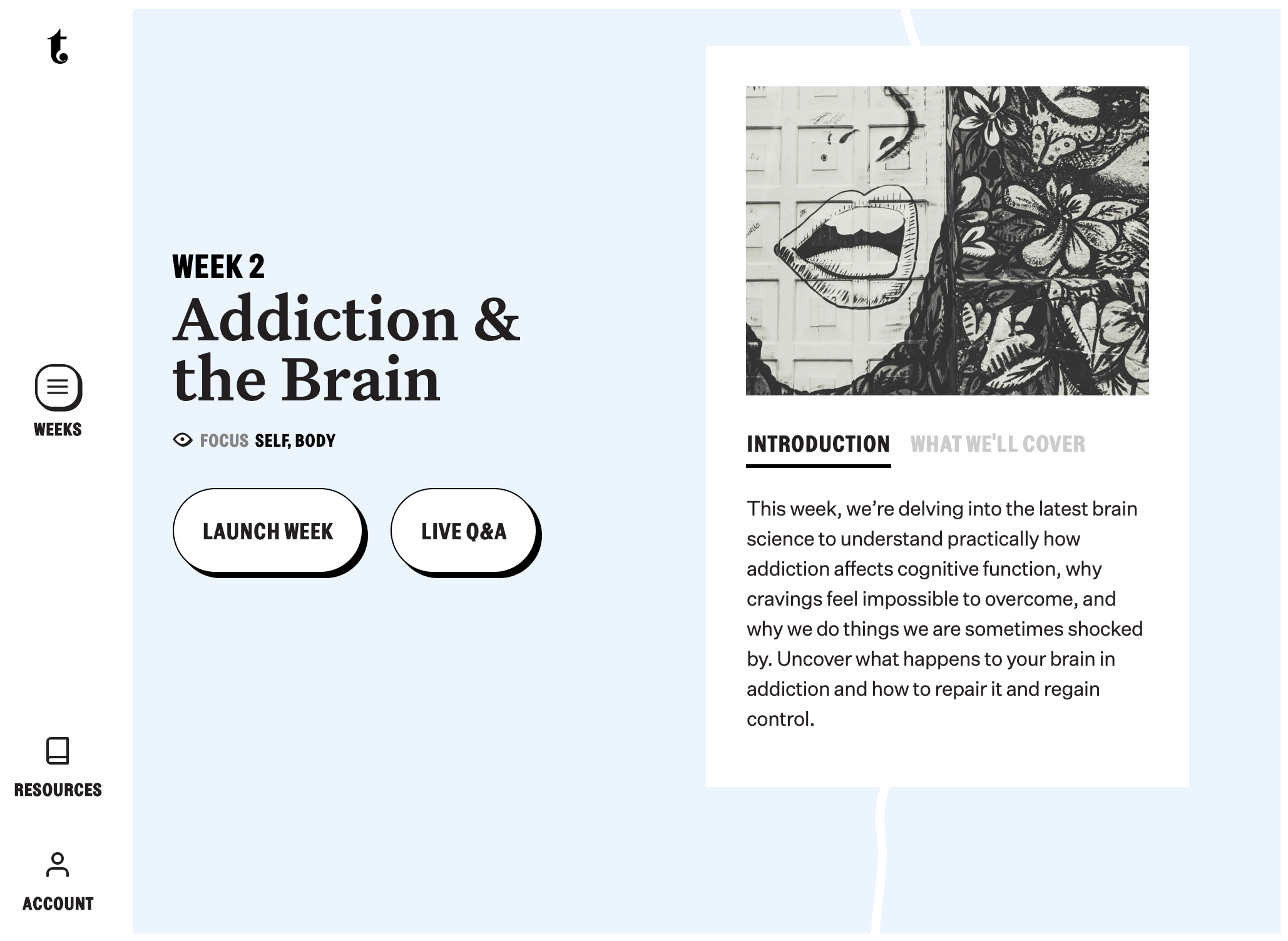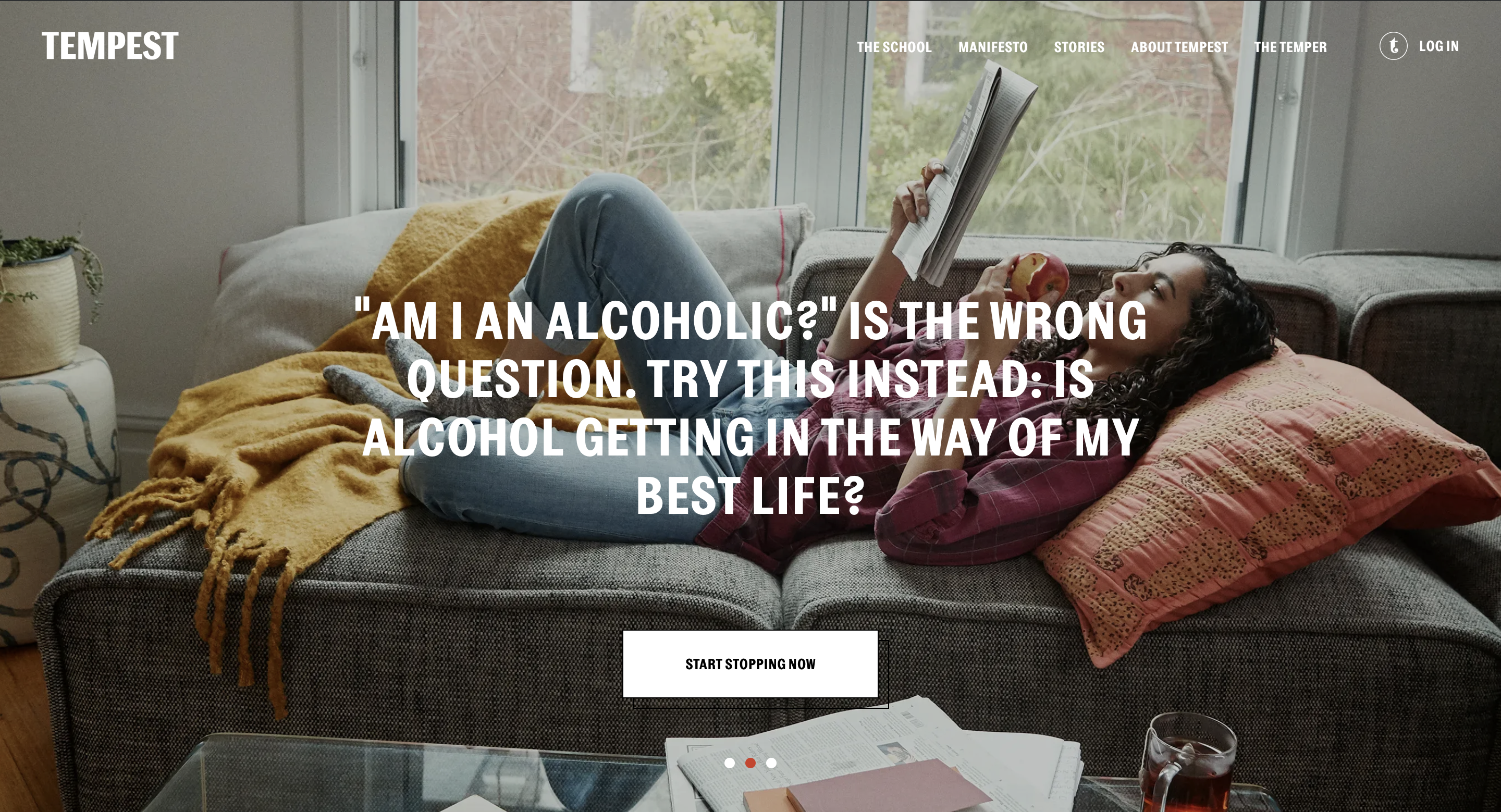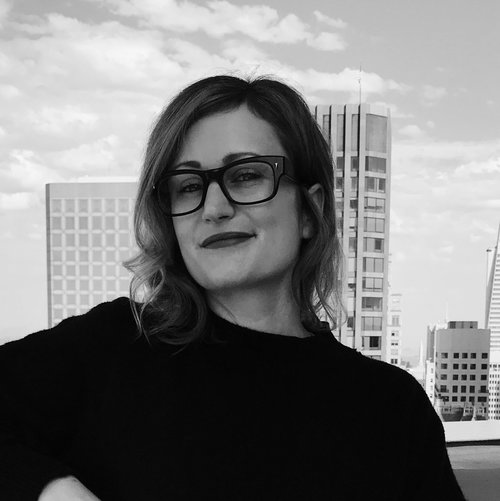Startup says ‘Sober is the new black’
Maveron, Slow Ventures and Female Founders Fund have invested $10 million in a startup that claims it’s carving a new path to sobriety.
Tempest offers a $647 eight-week virtual “sobriety school” to help people, particularly women and “historically oppressed individuals,” get sober. The program is led by the company’s founder and chief executive officer Holly Whitaker, who conducts weekly video lectures and Q+As for participants. Offering their expertise as part of the package is marriage and family therapist Kim Kokoska; Valerie (Vimalasara) Mason-John, the co-founder of Eight Step Recovery; and wellness coach Mary Vance, among others.
Tempest teaches the underlying causes of addiction and the “importance of purpose, meaning and creativity in breaking addiction,” as well as how to manage cravings, how to navigate social situations as a non-drinker, how to develop a mindfulness practice and more. At the end of the program, participants can pay a $127 fee for an annual membership to the Tempest online community, where one can communicate with others who’ve completed the program.
Tempest Syllabus
Week 1: Recovery Maps + Toolkits
Week 2: Addiction & The Brain
Week 3: Habit and Night Ritual
Week 4: Yoga, Meditation and Breath
Week 5: Nutrition & Lifestyle
Week 6: Relationships & Community
Week7: Trauma & Therapy
Week 8: Purpose & Creativity
Week 8+ Wrapping Up + Next Steps

A snapshot of Tempest’s weekly coursework.
A holistic approach
Founded in 2014, New York-based Tempest has raised about $14.3 million in total VC funding. Whitaker previously spent five years at One Medical, where she was the director of revenue cycle operations. Since founding Tempest, which has enrolled 4,000 participants to date, Whitaker received a two-book deal from Random House to document her methodologies and path to sobriety. Her first book, ‘Quit Like a Woman: The Radical Choice to Not Drink in a Culture Obsessed with Alcohol,’ will be released on December 31.
Today, her business has 28 employees and plans to build out its team, invest in marketing — where it’s historically had very low spend — and explore business opportunities within the enterprise using cash from the $10 million Series A.
“Sobriety, and the refusal to partake in alcogenic culture, is subversive, rebellious, and edgy.” - Tempest
The company is careful to clarify it’s not a detox or 12-step program, like Alcoholics Anonymous, which is structured around the Twelve Steps to recovery. Rather, Tempest can be used in combination with other programs or therapies, or as a first step down the path to recovery. Whitaker explains Tempest isn’t only for the clinically addicted or those who consider themselves addicts or alcoholics. The company welcomes people who have rejected these labels or simply want to cut alcohol out of their life.
“Tempest grew out of my own experience,” Whitaker, who has previously struggled with alcoholism and an eating disorder, tells TechCrunch. “It was a response to the lack of desirable and accessible options to address problematic drinking, the lack of options available for people who don’t identify as alcoholics but struggle with alcohol and the lack of options that have been created for women and other individuals. Everything had been created for men.”
Tempest is tailored to the needs of women and historically oppressed individuals, says Whitaker, though all genders are welcome to complete its course. Taking a holistic approach to recovery, participants are encouraged to address the factors that led them to drink in the first place, including “love lives, poor nutrition, stress, anxiety, crap friendships, consumerism, lack of purpose, unresolved family of origin issues, disenfranchisement, poverty, tight or unmanageable finances, lack of connection, fear, shitty jobs we hate, depression, unprocessed trauma, lack of meaning, unfulfilled dreams, never-ending to-do lists, never-measuring-upness,” the company writes.

Tempest’s website
But what about A.A.?
I had the same question.
Alcoholics Anonymous (A.A.), the most popular and accessible approach to recovery, is free and open to anyone willing to acknowledge they have a drinking problem. A nonprofit organization, A.A. has more than 115,000 groups worldwide. The 84-year-old program is built on peer-support groups that gather regularly for discussion meetings. Over time, more seasoned members can become “sponsors,” helping newer entrants work through the Twelve Steps.
Tempest, alternatively, is taking a for-profit approach, charging for its tech-infused method. And where A.A. emphasizes in-person support groups, Tempest relies on video streams. Increasingly, telemedicine startups are enticing customers with convenient options for health and wellness care but whether people will truly pivot to telemedicine, tele-therapy or virtual sobriety schools is still up for debate. As for Tempest’s similarities to A.A., Whitaker says: “The only thing they have in common is that they are working to help people quit alcohol.”
“By just trying on sobriety or questioning our drink-centric culture, you are profoundly ahead of the pack.” - Tempest
In selling its sobriety school, Tempest evokes a sense of coolness, with phrases like “Sober is the new black” and “Your hangover goes away. Your social life doesn’t,” plastered on its website. In providing a priced and more exclusive route to sobriety, one might question Tempest’s ethics and motivations as it builds a business that capitalizes off of substance abuse. Whitaker, in defense, explains a virtual school fit for the historically powerless is a necessary addition to existing options: “Our program is centered on individuals who have been held out of power, who have been told to shut up and listen,” she said. “We aren’t looking at white, upper-class men. We are looking at a queer person from 2019.”
According to survey data published by Recovery.org, 89% of A.A. attendees are white, while 38% are female.
Refusing ‘alcogenic culture’
Tempest’s branding takes a cue from the D2C playbook. The company, led by women, has the opportunity to become the brand that represents sobriety, and it’s taking it. Tempest’s Series A, coupled with the influx of new-age non-alcoholic beverage brands backed by VCs, is representative of the perceived shift away from alcohol among the younger generations.
Millennials are drinking less alcohol and, according to the World Health Organization, there are 5% fewer alcohol drinkers in the world today than in 2000. Tempest’s school seems to cater more to the cohort of people who view ditching alcohol as a lifestyle perk, not those who stop drinking due to addiction.

Tempest founder and CEO Holly Whitaker
Seedlip, a non-alcoholic spirits company, and India’s Coolberg Beverages, which makes non-alcoholic beer, recently raised VC to cater to a similar demographic. Meanwhile, CBD-infused beverage brands like Sweet Reason, Cann and Recess are trendy and raising venture money. None of these, of course, are solutions for someone struggling with alcohol. Capital flowing into these brands merely indicates venture capitalists’ belief that consumers are steering away from traditional liquor and toward new products fit for a generation that is drinking less alcohol.
“By just trying on sobriety or questioning our drink-centric culture, you are profoundly ahead of the pack and among good company,” Tempest writes on its website. “Remember: 70-80% of adults drink depending on where you live; drinking is basic. Sobriety, and the refusal to partake in alcogenic culture, is subversive, rebellious, and edgy.”
Tempest says it has completed an efficacy study performed in consultation with researchers affiliated with the University of Buffalo and Syracuse University. In several years’ time, we’ll know whether the countless think pieces claiming millennials are done with alcohol were indeed true and whether the VC money into these upstarts was wasted or pure genius. As for Tempest, even if just providing a designated place on the internet for discussions around the struggles or benefits of sobriety, it has the potential to make a big impact on those in recovery or those seeking a lifestyle change.
“Alcohol is very similar to cigarettes,” Whitaker said. “We are in a time that we think drinking alcohol is natural, that we are supposed to do it. I thought that would change because to me, alcohol is entirely toxic. We are approaching this tipping point of realizing how toxic and unnecessary it is.”
Tempest is also backed by AlleyCorp, Refactor and Green D Ventures. Maveron’s Anarghya Vardhana has joined the startup’s board of directors as part of the latest deal.
No comments: